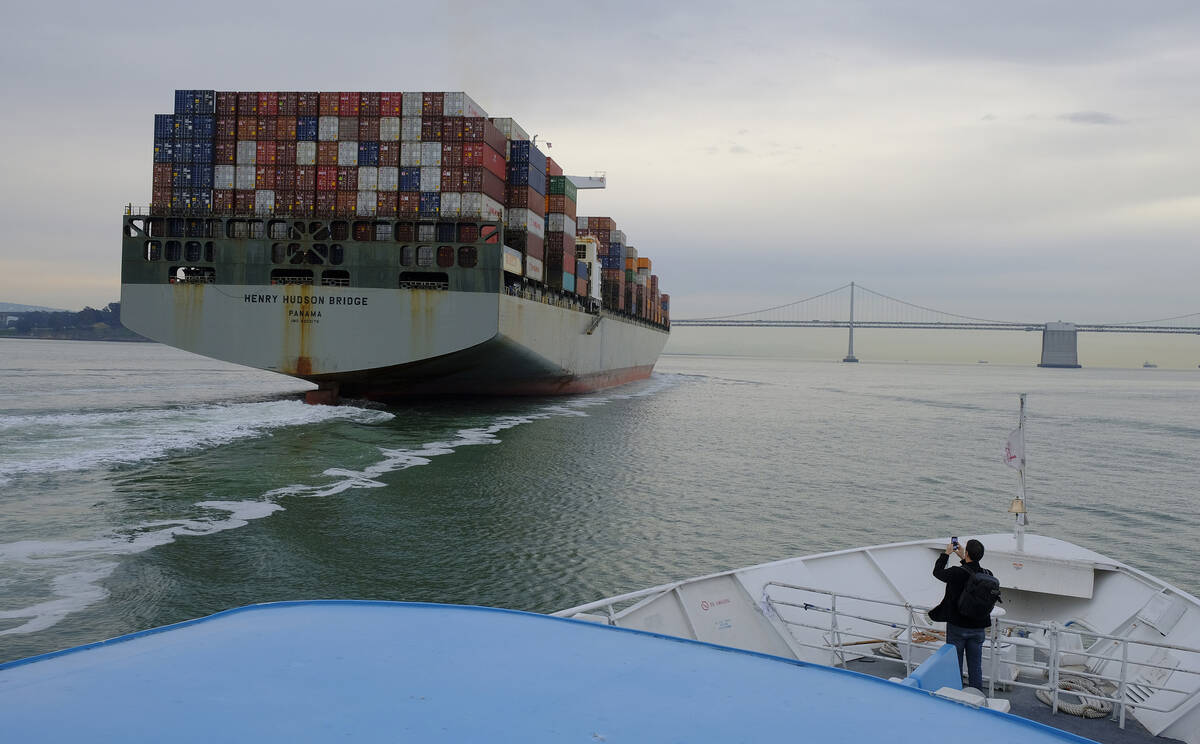COMMENTARY: Tariffs’ biggest casualties — workers and manufacturing
Former President Donald Trump recently threatened tractor giant John Deere with a 200 percent tariff if it follows through on plans to shift some production to Mexico before 2027. Economists criticized the proposal, believing it will increase costs for struggling farmers, add to U.S. inflation woes and trigger retaliation from Mexico that will further harm Americans.
Trump and fellow populists seem undeterred, but they need to examine what’s happening. Tariffs are already backfiring on the workers and industries they’re meant to protect.
Ironically, Deere’s move was likely driven by cost pressures, including those it absorbed from the 2018-19 steel tariffs introduced by Trump and maintained by the Biden administration.
That shouldn’t surprise us. Such tariffs especially adversely affect consumers and industries that rely on imported inputs, such as heavy or advanced manufacturing.
Nonetheless, both major parties now embrace tariffs to supposedly protect U.S. jobs. These are sometimes justified under “national security” grounds that are often spurious.
In 2018-19, Trump introduced a range of tariffs on imports, including a 25 percent tariff on steel and a 10 percent tariff on aluminum. Six years later, these and other tariffs remain in place with some exemptions and carve-outs, with Trump promising to increase them substantially if elected.
President Joe Biden’s administration maintains the steel tariffs despite his previous condemnations, citing national security concerns even though they disproportionately affect countries considered U.S. allies. America imported little steel from China.
The tariffs backfired, leading to slower export growth. With U.S. manufacturing jobs that use steel as an input outnumbering steel jobs by 80-1, domestic manufacturers closed plants and downsized because of less affordable inputs. General Motors alone cut thousands of jobs after the tariffs imposed more than $1 billion in costs on them in 2018.
Researchers have found that in conjunction with other 2018-19 import tariffs, the damage was equivalent to a 2 percent tax on all U.S. exports, costing $900 for every affected worker by 2020. Even in regions where protected industries operate, a 2024 study on import tariffs found no significant protective effect on jobs while conversely finding that other nations’ tariff retaliation had an apparent negative effect on employment across U.S. sectors.
It’s a tale as old as time. Sure, a few well-heeled businesses may gain from tariffs on their competitors. The costs end up being paid not by the tariff’s targets but by the American consumers and firms they’re passed on to, harming workers and reducing domestic employment opportunities.
Longstanding tariffs benefiting U.S. sugar producers, for example, have driven U.S. consumers to imported candy bars and U.S. candy makers to offshore production while cutting American jobs. Similarly, the steel tariffs helped domestic steelmakers but made U.S. garbage disposal makers less competitive, driving Americans to purchase foreign appliances.
Tariff proponents’ like to claim they’re playing “four-dimensional chess,” using tariffs strategically to leverage other countries to lower their protectionist trade barriers. With some exceptions — such as the successfully renegotiated USMCA trade agreement — this argument hasn’t held up.
Biden, Vice President Kamala Harris, Trump and running mate JD Vance all say that tariffs on China are necessary for national security. Yet, they also support or maintain tariffs that make American firms less competitive against Chinese peers while punishing potential global allies who might help oppose Chinese protectionism and IP theft, harming U.S. companies.
The rhetoric around punishing other countries and American firms that take advantage of global supply chains gives tariffs a populist appeal. However, the failure to temper populism with pragmatism will harm America’s manufacturing, workers and raise living costs. It has also left the country less competitive and less well-placed to make the most of its relationships on the world stage.
Satya Marar is a postgraduate fellow at the Mercatus Center at George Mason University. He wrote this for InsideSources.com.

















